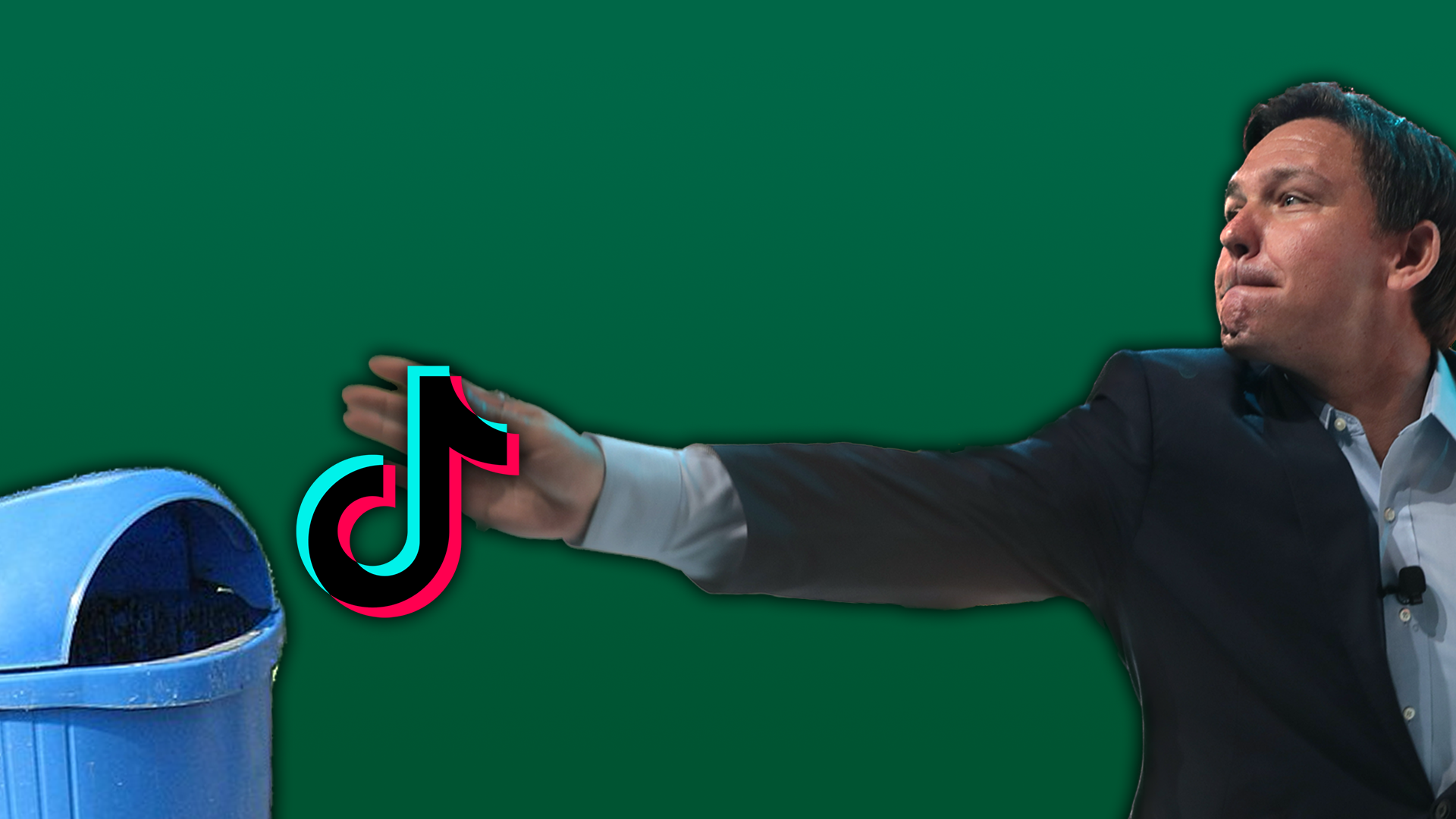OPINION: TikTok ban infringes on First Amendment rights

USF banned the use of TikTok and other foreign-owned social media apps on campus on Wednesday in response to an emergency regulation by Gov. Ron DeSantis and the Board of Governors, according to a universitywide email from Information Technology Communications.
Students and staff will no longer be allowed to download or use TikTok, Tencent QQ, WeChat, Vkontakte or Kaspersky on university-owned devices or wi-fi networks.
This ban is a huge overstep by the government, as it takes away an outlet that millions of students use as an opportunity to communicate and express themselves. It violates First Amendment freedoms and should be overturned.
This comes after DeSantis proposed a Digital Bill of Rights on March 28, which is currently making its way through the state legislature. The bill would ban any social media platform associated with China on state government devices and on public schools and university campuses. Legislators are concerned with the apps collecting American users’ data for foreign governments.
“This arguably violates freedom of speech, constitution-wise, and most young people are not happy or even strongly opposed to the dissent,” said USF journalism and digital communications professor Miyoung Chong in an April 3 article by The Oracle.
People have a right to share and receive information, and 55% of college-aged Americans choose to do that via TikTok, according to a 2021 study by the Pew Research Center.
The Authors Guild and the Knight First Amendment Institute sent a letter to Congress on March 23 in which the group expressed their concerns with the implications of the ban.
“For citizens, and particularly the tens of millions of young Americans who use TikTok, to witness a popular social media platform summarily shut down by the government will raise serious questions in the minds of a rising generation about the sanctity of free speech in our system of governance,” they said.
The Supreme Court even ruled that taking away a person’s access to social media does, in fact, violate their First Amendment rights, in the 2017 case Packingham v. North Carolina.
Advocates of the TikTok ban claim that, since the government is banning the app based on suspicions about the company rather than the actual information being shared, it is not a violation, according to a March 28 article by Reuters.
However, this ban is likely to set a dangerous precedent regarding how the government is allowed to regulate Internet activity regardless of why it’s being put into place.
“Banning or restricting access to social media is a hallmark of authoritarian regimes, and we should be very wary about giving the U.S. government that kind of power,” said Jameel Jaffer, executive director at the Knight First Amendment Institute at Columbia University in a March 22 statement.
The ban of TikTok, as well as other social media, was not only unnecessary, but it violates the rights of students by allowing the government to overstep and enact stricter regulations for online behavior. It needs to be overturned to protect the rights of students and other American citizens.








